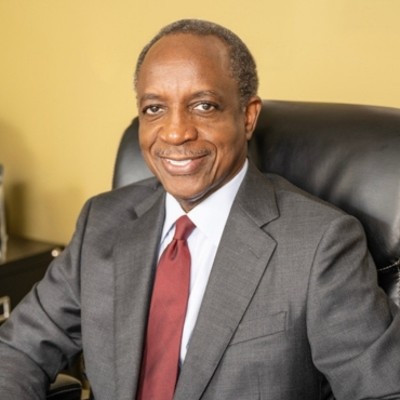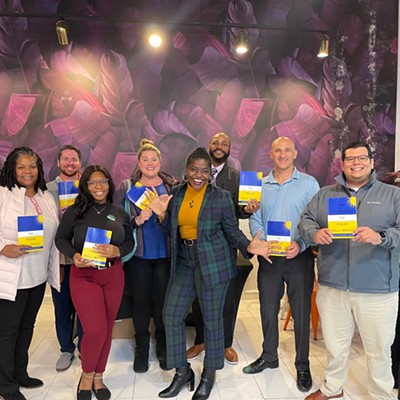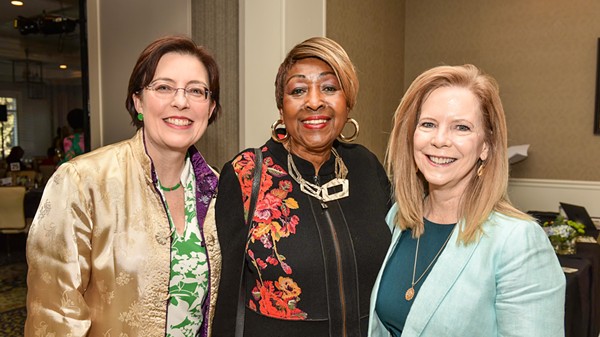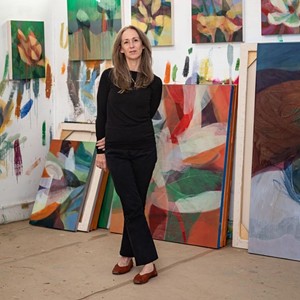Savannah gets a rare treat next week, as one of the poetry world’s brightest young lights gives a reading. Hosted by the Poetry Society of Georgia, Francisco Aragon reads Tuesday, May 16, at 7 p.m. at St. Paul the Apostle Episcopal Church at 34th and Abercorn. The meeting is free and open to the public. Currently the Director of Letras Latinas at the Institute for Latino Studies at the University of Notre Dame, Aragon’s multicultural background informs his vibrant poetry. Born in San Francisco of Nicaraguan descent, Aragon lived in Spain for a decade before coming back to his native United States to teach and write. Aragon spoke to us from his office in South Bend, Indiana.
Connect Savannah: As a journalist, I’m struck by how your poems are very much in the moment. Not slices-of-life exactly, but detailed chronicles of particular moments in time.
Francisco Aragon: Oftentimes I have the experience of sound or smell or song -- some sort of sensory sensation jars some memory I thought had long been forgotten. What I try to do then is record such moments, moments where the speaker might be doing something new or everyday and have a jarring moment where they experience a particularly sensory perception, maybe one that the speaker had long forgotten.
Connect Savannah: Some of your poems specifically chronicle the presence of terrorism in Spain.
Francisco Aragon: Well, the book that I’m promoting is basically a book that chronicles the years I lived in Spain pre-911. When I give readings today I make sure to say that living in Spain in the 1990s, we had experience that Americans have not had until 9/11 -- that is, living in a country where there was the threat of terrorism. Up until recently, when there has been a resolution, there was a problem with Basque terrorism. So the time I was living in Spain I was living in a city where carbombing was possibility. All this was pre-9/11.
Connect Savannah: Tell us more about what you do at Notre Dame.
Francisco Aragon: I’m a professor of Latino Studies at Notre Dame. I’m in charge of the literary unit here. The work that I do in my job is on behalf of U.S.-born Latino poets. Basically my job is to conceive of and implement various programs that help enhance the visibility of Latino literature. I just edited an anthology that will be published about a year from now by the University of Arizona, called Expanding Borders: The New Latino Poetry. It features 25 emerging poets with no more than one book in print. I’m also very excited about a National Endowment for the Arts-funded initiative we’re doing called “Poetas y Pintores: Artists Conversing with Verse.” It’s a wonderful multidisciplinary initative that involves 12 Latino visual artists creating original works of art inspired by the work of 12 Latino poets. It just left New York and it’s opening in LA June 6. We hope to have a national tour soon.
Connect Savannah: What do these new Latino voices have to say? What are they feeling right now?
Francisco Aragon: One of the things I’m trying to argue in promoting Latino poets is that they’re a very diverse and heterogeneous bunch. One of our concerns of course is family, our ethnic ancestry. But what’s exciting about the new group of poets is that they write about what everyone writes about -- life experiences, visual arts, love, death. So what I would say is we write about what everyone writes about. But because there still is a climate where they aren’t necessarily represented in the mainstream, there is a need to present a collective face.
Connect Savannah: This conversation reminds me how disappointed I was to see the cable news shows whipping up a backlash against the May 1 boycott. The race-baiting was really obvious. The Latino community has come so far lately in terms of mainstream acceptance, especially in pop culture, with the Latin Grammies and things like that. And then this happens, and we’re back to the same old Fear of a Brown Nation syndrome.
Francisco Aragon: You know, I was driving to work this morning listening to NPR, and a Latino journalist in San Diego was saying the exact same thing. He was drawing parallels with what has happened in the past with other marginalized groups -- African-Americans, gays and lesbians. But overall he seemed to be optimistic. And I guess I share his optimism. My sense is that it’s not surprising that this is happening – as Latinos become more prevalent in the community, some people will act out of fear. But once you personalize the story and hear people’s everyday stories, those fears hopefully will break down. All indications seem to suggest there’s going to be legislation to improve the situation. And actually, President Bush is adopting the right position on this, I think. It’s the right wing of his party that seems to be concerned about what I think is an unfounded fear.
Connect Savannah: Back to poetry: There seems to be a renaissance of sorts with poetry through the hip-hop spoken word community. We’ve actually got quite a vibrant spoken word scene here in Savannah. Do you consider that influence a net positive for the art form?
Francisco Aragon: Anything that enhances the visibility of poetry, whether it’s spoken word -- sometimes the phrase slam poetry is used -- is good. I say, the more the merrier. My only concern though, is that I do make a distinction, because some spoken word poetry is in fact performance-based, and where it’s at its best is in live performance. As we know, poets don’t live forever, and one of the tests of poetry is how well it will stand the test of time when the original author is no longer with us.
Connect Savannah: Tell us more about your new book, Puerta del Sol.
Francisco Aragon: The title is in reference to a public plaza in central Madrid. As such, a lot of the poems do take on this idea of trying to record life in public spaces such as parks, plazas, and squares. The book basically gathers all the poetry I wrote during my years in Spain. The middle section is an elegy to my mother who passed away in ’97.The final section contains more personal poems, but always with Spain as the backdrop. It’s basically a book that tries to chronicle someone’s journey in Europe who’s originally from the U.S. And because it’s bilingual, it’s also a book about exploring language.
Connect Savannah: Each poem is published in English and Spanish. You call the Spanish versions “elaborations.”
Francisco Aragon: Well, the poems are all originally written in English. I decided to use the word “elaboration,” not “translation”, because since they were my own poems I felt I could take liberties if I wanted to in coming up with the Spanish version.
Francisco Aragón will be the featured speaker for the May 16 meeting of The Poetry Society of Georgia at 7 p.m. in St. Paul The Apostle Episcopal Church on 34th Street at Abercorn. Free and open to the public. A reception with the poet follows.



























